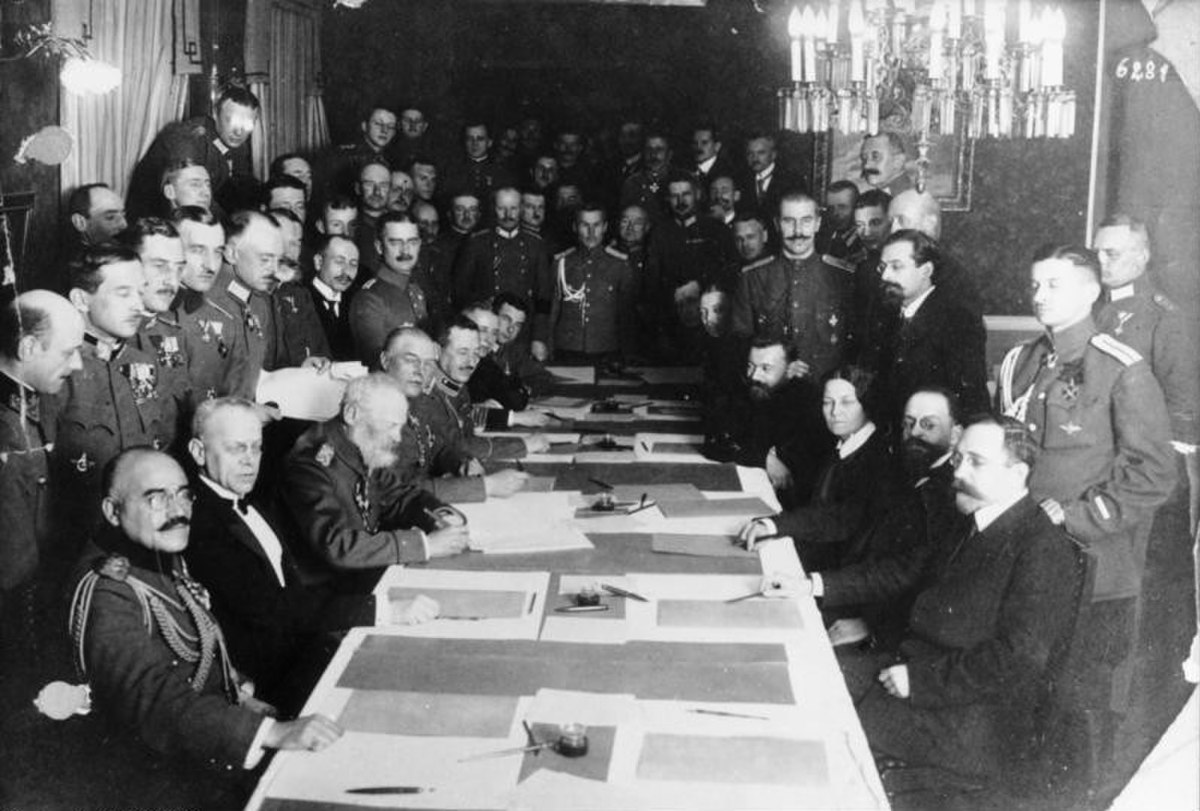
Russia exits World War I
Litovsk, BelarusThe Treaty of Brest-Litovsk was a separate peace treaty signed on 3 March 1918 between Russia and the Central Powers (Germany, Austria-Hungary, Bulgaria, and the Ottoman Empire), that ended Russia's participation in World War I. The treaty was agreed upon by the Russians to stop further invasion. As a result of the treaty, Soviet Russia defaulted on all of Imperial Russia's commitments to the Allies and eleven nations became independent in eastern Europe and western Asia. Under the treaty, Russia lost all of Ukraine and most of Belarus, as well as its three Baltic republics of Lithuania, Latvia, and Estonia (so-called Baltic governorates in the Russian Empire), and these three regions became German vassal states under German princelings. Russia also ceded its province of Kars in the South Caucasus to the Ottoman Empire. The treaty was annulled by the Armistice of 11 November 1918, when Germany surrendered to the western Allied Powers. However, in the meantime it did provide some relief to the Bolsheviks, already fighting the Russian Civil War (1917–1922) following the Russian Revolutions of 1917, by the renunciation of Russia's claims on Poland, Belarus, Ukraine, Finland, Estonia, Latvia, and Lithuania.
